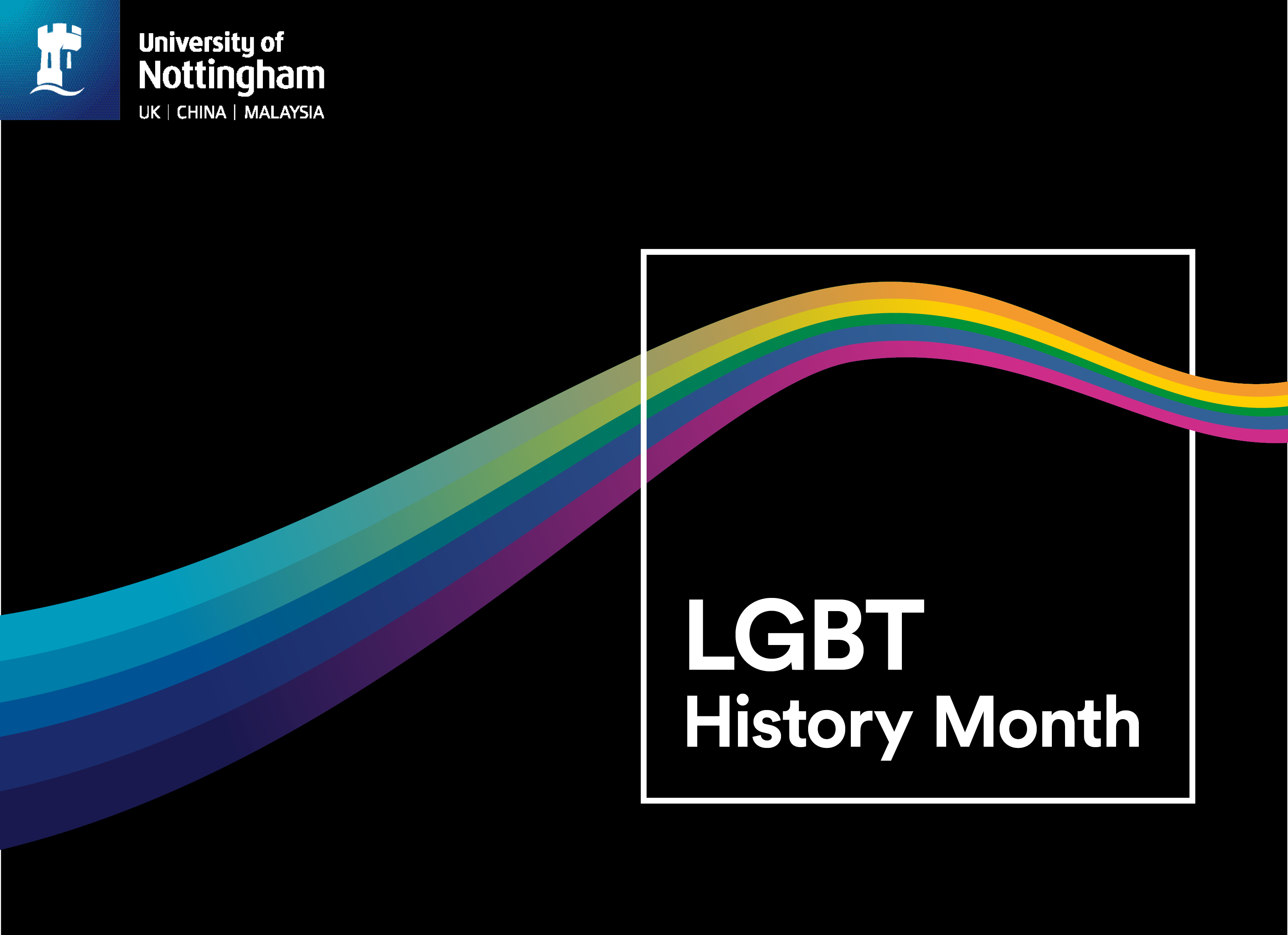
January 9, 2019, by Claire Henson
LGBT History Month at the University of Nottingham
February 2019 will once again see the marking of UK Lesbian, Gay, Bisexual, Trans (LGBT) History Month at the University of Nottingham.
Introducing the event, Max Biddulph, Chair, UoN LGBTQ Staff network, said:
“Our programme of events is part of the national celebration of LGBT History which in 2019 will be aligned along the themes of Peace, Reconciliation and Activism.
UK LGBT History Month itself is the product of activism, emerging from a long-standing silence in education in the twentieth century, when the portrayal of the lives of LGBT people and events received scant attention. Thanks to the courageous efforts of Sue Saunders and the late Paul Patrick, members of the LGBT Teachers organisation Schools Out, we now have a national event that has grown well beyond the confines of school classrooms into many public sector organisations and spaces.
The significance of history, is that as well as providing a lens through which to understand and analyse the past, it is able to simultaneously shine a light on the present. In their overview of the 2019 event, LGBT History Month note that it is potentially naive and complacent to think that LGBT issues in society are always aligned as a forward march:
‘With the rise of a new wave of right-wing populism and the election of a number of leaders who would turn the clocks back, it has never been more important to stand our ground and claim our place in the world. We do that by asserting that LGB and T might be 20th century terms, but they describe same sex desire and gender variance, which have existed in all times and all places’.
In identifying significant profiles for the month, LGBT History Month note that:
‘our lesbian face of 2019 is Marielle Franco, the black lesbian feminist murdered earlier this year; an apposite choice from a nation that has recently elected the openly fascist Jair Bolsonaro.
Our gay face is Magnus Hirschfeld, arguably Europe’s first advocate for LGBT rights, whose film Anders als die Andern (Different from the Others) was released in 1919.
Our bisexual face is Robert Graves, most famous for his autobiographical work Goodbye To All That as well as I Claudius.
And our trans face is Marsha P. Johnson, one of the most famous faces from the Stonewall Riots, who is thought by many to be have been murdered. We would argue that Marsha presented as female off the stage as well as on it and that, had the term been available at the time, she would be described and indeed may well have described herself as gender non-conforming.’
Within the university our programme of events will originate from both the People and Culture team as well as from individual schools and departments.
We look forward to welcoming you to this important opportunity to learn about the diversity of our university community.”
As in previous years, a variety of events will take place around the University during LGBT History Month. These are free to attend and open to all, and include:
- Brothers in Arms: sexuality, men and intimacies in the Great War: a performance-lecture event exploring the concept of ‘romantic friendships’ amongst the soldiers of the Great War.
- The Killing of Sister George: a screening of this ground-breaking film, which was one of the first in history to be released with an ‘X’ rating in the United States. Set in 1968, it has historic meaning and is a landmark in queer cinema.
- Further events will be announced shortly.
Professor Sarah Sharples, Pro Vice-Chancellor for Equality, Diversity and Inclusion, added: “I am really pleased to see such a vibrant and diverse series of events as part of LGBT history month. For all staff and students, whether they are part of the LGBT community or not, it is tremendously valuable to learn about the history of experiences of LGBT individuals. These stories are vital in reminding us how much has been achieved in equality for the LGBT community, as well as how much there is still to do.”
This year’s LGBT History Month will take place from Friday 1 February – Thursday 28 February 2019. To browse all events, please visit the University’s events page.
You can also visit the People and Culture blog for the latest LGBT History Month updates.
No comments yet, fill out a comment to be the first

Leave a Reply